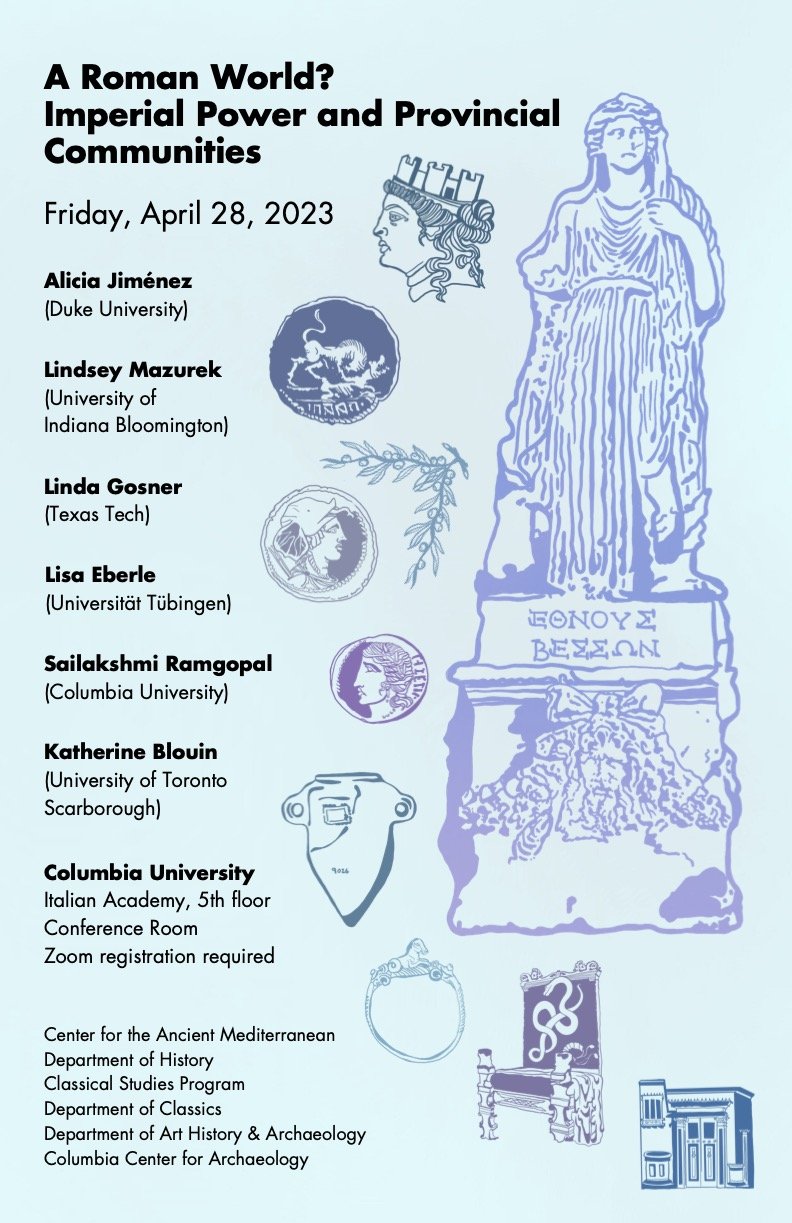Organizer: Center for the Ancient Mediterranean; Department of History; Classical Studies Graduate Program; Department of Classics; Department of Art History & Archaeology; Columbia Center for Archaeology
Location: The Italian Academy for Advanced Studies, Columbia University
The Italian Academy for Advanced Studies, Columbia University, 5th-floor conference room open to the public; in-person and on Zoom
Please fill out this form if you plan to attend the conference remotely. Upon registration, you will receive the Zoom link, which will be also circulated on the morning of the event: https://forms.gle/tfvQqK3TNnjvZaPP7
The phrase “the Roman world” has long served as a useful shorthand to describe Rome’s vast sphere of influence. Yet it homogenizes: the peoples who inhabited the Roman Empire were tremendously diverse; until 212 CE most were not, legally speaking, Roman citizens. Moreover, they exerted great agency in their responses to and relationships with Roman power and, in so doing, profoundly shaped the empire’s social, political, cultural, and economic expressions.
“A Roman World?: Imperial Power and Provincial Communities” shares new research that explores these dynamics from a range of disciplinary perspectives. Emphasizing a diversity of actors, regions, and media, this workshop conference addresses topics that include the creation of new Italian identities in the Republican province of Africa; the relationships between industrial activity in Carthago Nova and the natural environment; and the use of portrait sculpture by religious communities in imperial Thessaloniki as a means by which locals redefined themselves in relation to Rome. “A Roman World?” rejects the traditional dichotomy of colonizer and colonized and instead interrogates the politics of writing and rewriting the Roman past. Ultimately, it presents a new history of a world that was, in important ways, not Roman at all.

